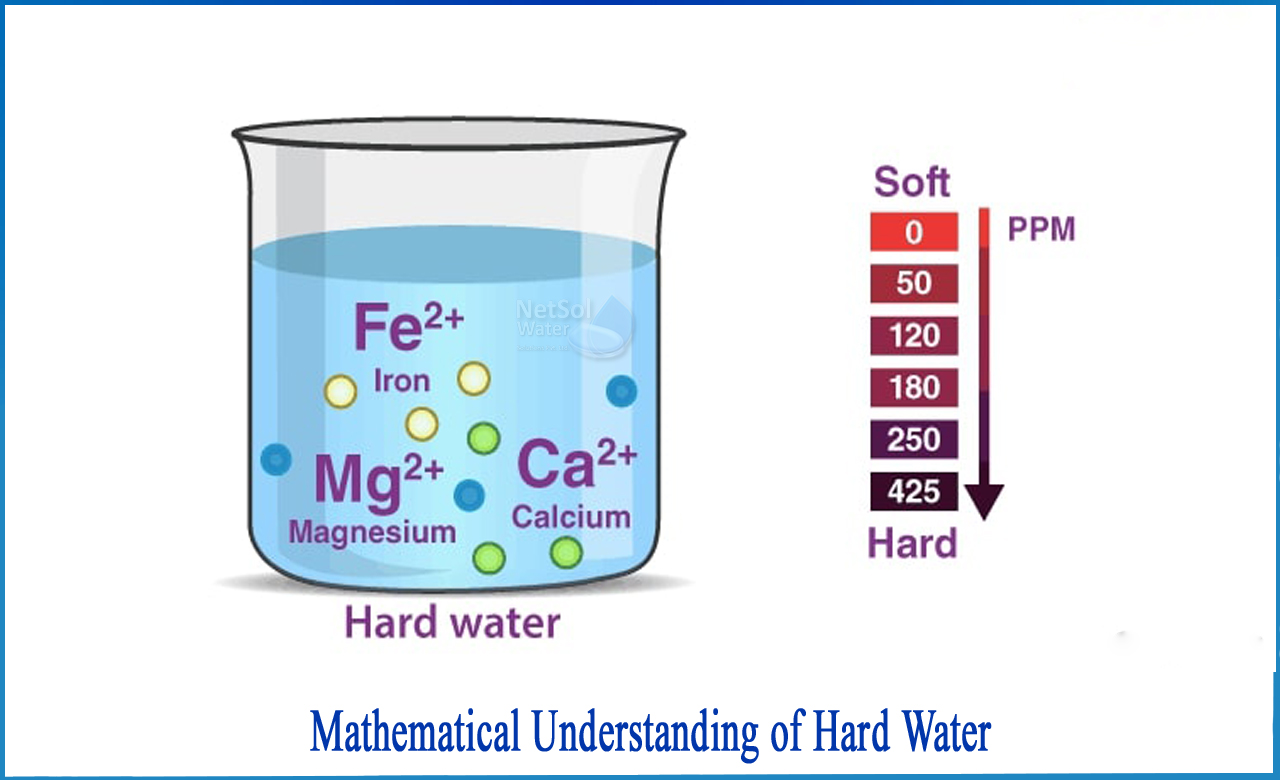WHAT DO YOU MEAN BY SOFT WATER?
Soft water, unlike hard water, has a low ion content, particularly calcium and magnesium. The soft water is usually found on the surface itself. Rainwater is the most prevalent source of soft water.
Describe Of Hard Water In The Terms Of Mathematics?
It's easy to become technical when talking about hard water. There can be a lot going on, from mathematical conversions to several zeroes. Here are some of the most common numbers you'll see and what they mean:
Numbers relating to hard water
17.14 parts per million is one grain per gallon (gpg) (ppm). Water hardness can be measured in either gpg or ppm, however gpg is the most used unit.
20,000–80,000: This range represents the grain capacity of the majority of water softeners in the market. You may require a smalleror largergrain capacity softener depending on your water hardness number, daily water use, and the number of people in your home.
TEST YOUR HARDNESS LEVEL IN WATER
Your result will fall somewhere on the hardness scale after successfully testing your water to determine your hardness number. After you've tested your water and received your result, use the guide below to figure out where your water falls:
HARDNESS OF WATER LIES OVER 15: Anything over 15 gpg is considered extremely hard water. Glasses are extra smudge-prone, skin is extremely squeaky, and soap scum is at its most tenacious. If you have well water, you may also notice other symptoms of a problem, such as iron stains.
HARDNESS OF WATER LIES BETWEEN 11–15 gpg: Water with a hardness of 11–15 gpg exhibits all of the characteristics of hard water all of the time.
HARDNESS OF WATER LIES BETWEEN 7–11 gpg: Hard water contains a lot of minerals, therefore you'll probably have crusty faucets and pipes, as well as crimson rings on your porcelain from too much iron.
HARDNESS OF WATER LIES BETWEEN 3–7 gpg: Water with a hardness of 3–7 gpg causes spotty dishes and dry skin.
HARDNESS OF WATER LIES BETWEEN 0–3 gpg: If your hard water test strip says your water is between 0 and 3 gpg, you don't need to soften it.
IN HOW MANY DAYS WATER SOFTENERS REGENERATE?
WITHIN 5DAYS TO 10 DAYS-Your water softener should renew every 5–10 days, on average. This is dependent on whether you have a time or demand-activated water softening, the amount of water used in your home, and the softener's grain capacity.
IN EVERY 6-8WEEKS:Due to the efficiency of demand-initiated water softeners, which regenerate only when needed, you'll probably only need to add one 40-pound bag of salt to your softener every 6–8 weeks.
But,to obtain an economical 24,000 grain capacity, a typical softener with 1 cu. ft. of resins (30,000 grain, 10" x 44" tank) should utilize roughly 6-8 lbs in every regeneration (hardness in grains divided into grains of capacity results in the gallons of water that can be treated before resins is exhausted).
WHEN DO THE RESINS IN THE SOFTENER TANK NEED TO BE CHANGED?
The average water softener's resin will not need to be replaced throughout its lifetime (20+ years) if properly pretreated and maintained. Because there are so many factors that contribute to resin degradation, it is impossible to correctly predict how long it will last.
Netsol Water is Greater Noida-based leading water & wastewater treatment plant manufacturer. We are industry's most demanding company based on client review and work quality. We are known as best commercial RO plant manufacturer, industrial RO plant manufacturer, sewage treatment plant manufacturer, and effluent treatment plant manufacturers. Apart from this 24x7 customer support is our USP. Call on +91-9650608473, or write us at enquiry@netsolwater.com for any support, inquiry or product-purchase related query.



